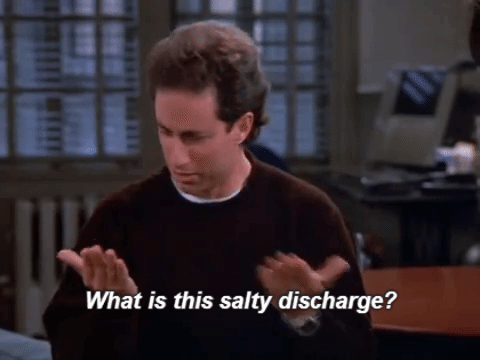
If you’re Australian, and a bloke, there’s a good chance you’re eating twice as much salt as the World Health Organisation reckons you should be.

According to a paper published today in the Medical Journal of Australia, men on average are consuming 10 grams of salt a day, and women 7 grams, putting us all at risk of heart disease and stroke.
Lead author Professor Bruce Neal from UNSW Sydney and the George Institute for Global Health said “salt’s a problem because what salt does is, throughout your life, you eat more than you need and your blood pressure goes up over your life.”
The majority of this excess salt we’re eating isn’t coming from the shaker – instead, it’s hidden in processed foods, Professor Neal said.
“You shouldn’t be putting salt on food because it’s not good for you, but that’s not the main issue here,” he said.
“The issue is the 85 per cent of the average Australian’s daily salt intake that comes from meats, cheeses, cereals, soups.”
All the good shit, really. Think Sunday arvo cheese platters, piled high with pastrami and d’Affinois.
It’s not just the platters we need to be mindful of, either. There are plenty of seemingly innocuous foodstuffs that are salt bombs. A typical single slice of bread can contain double the amount of salt found in a single serving of Kettle Sea Salt chippies.
Excess sodium increases blood pressure because it holds excess fluid in the body, and that creates an added burden on the heart. Too much sodium will increase your risk of stroke, heart failure, osteoporosis, stomach cancer and kidney disease. Globally, the WHO estimates 2.5 million deaths could be prevented each year if salt consumption were reduced to the recommended level.
But according to Professor Neal, the answer to this briny issue is to put pressure on the government and food industry to reduce salt content in food.
“Most of the actions trying to contain how much salt people eat have been about trying to educate people and tell them about the problem. And that’s important, but the food environment means that’s not desperately helpful. It has almost no impact at all,” he told the ABC.
He reckons we should be looking up to our cousins in the UK for inspo on how to lower our overall salt intake.
Around the year 2000, the UK government put pressure on the food industry to reduce salt content in food across the board.
As a result, there were about 11,000 fewer incidents of stroke and heart attack after 10 years. The investment of 15 million pounds ($26 million) a year for the program is estimated to have saved 1.5 billion pounds ($2.6 billion) in healthcare costs.
“It’s just an absolute no-brainer,” Professor Neal said.
Applying that to the ‘Strayan and NZ industry, modelling suggests if sodium intake was rescued by 10 percent over 10 years, it’d save over 11,000 years of life. Life that’d otherwise be lost due to ill health, disability or cardiovascular disease.
Longer, happier lives? That’s nothing to be salty about.




